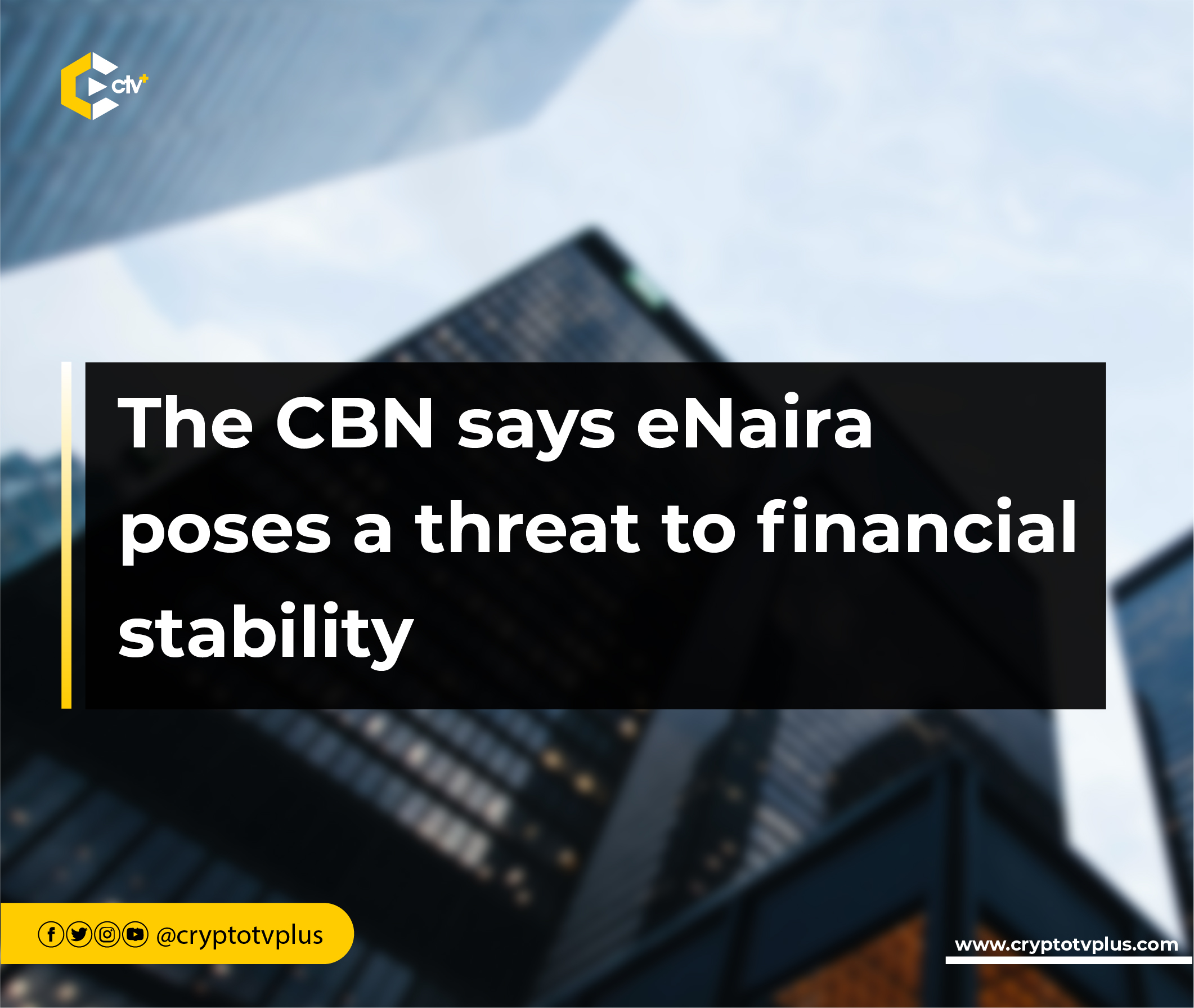FEATURED
The CBN says eNaira poses a threat to financial stability

The Federal Republic of Nigeria in 2021 joined the list of about 130 countries exploring the Central Bank Digital Currency (CBDC) initiative by launching the eNaira. While some nations like Ghana and South Africa are still in the pilot phase, Nigeria, along with a few others, has already launched its CBDC.
The Central Bank of Nigeria (CBN) introduced the eNaira with the primary objective of enhancing payment settlement processes. However, alongside its numerous advantages, the eNaira also has the potential to disrupt the financial system, thereby introducing some threat to financial instability.
According to a research report published by the Central Bank of Nigeria, there are notable financial stability implications associated with the eNaira, even amidst its benefits.
Funding and Liquidity Risk for Banks:
The conversion of bank deposits into eNaira has an average monthly growth of 78.3 percent, according to CBN statistics. This could lead to liquidity risks for banks if a significant portion of their deposits is converted into eNaira, potentially affecting their ability to meet withdrawal demands during times of crisis and could reduce the flexibility of banks to manage liquidity effectively.
While eNaira promotes financial inclusion, it also poses a risk of deposit substitution. If individuals choose to hold their funds in eNaira rather than traditional bank deposits, it could lead to a decrease in banks’ deposit base, which is one of the key sources of funding for banks.
Reduced bank profitability:
The eNaira offers free transactions, against the charges associated with traditional digital banking channels. As a result, banks may be affected in their “non-interest income”, which could impact their overall profitability.
Further, Banks typically generate revenue from fees, charges, and commissions related to electronic transactions. With eNaira transactions being free, banks might struggle to maintain their revenue streams, potentially affecting their financial stability.
Cybersecurity threats:
The eNaira could pose a threat to financial stability primarily due to cybersecurity risks. Financial stability is closely linked to cybersecurity, especially with the increasing reliance on digital banking and payments. Attacks on key financial institutions or core systems could spread throughout the entire financial system, causing disruptions, loss of confidence, and potential failures in transactions, leading to liquidity issues and restricted access to deposits and payments. This could escalate to the point where investors and depositors might withdraw funds or cancel accounts.
Reduction in Bank Deposits:
An increase in the demand for eNaira, could lead to a reduction in bank deposits and gross credit supply. This reduction poses a risk as it affects the liquidity and stability of banks. Reduction in credit availability, especially in more extreme conditions, can impact economic growth and business activities.
Additionally, when an increase in eNaira demand causes a rise in the loan-to-deposit ratio of banks, banks might be lending out a larger portion of their deposits, potentially increasing risk if not managed.
Risk of disintermediation:
This risk arises from households choosing to exchange their bank deposits for eNaira, impacting the liquidity conditions of banks. This shift in money demand decisions could lead to instability in the financial system as it could affect the traditional intermediation role of banks and potentially disrupt the balance between deposits and available funds for lending.
Despite these risks, some of the mitigating measures in place by the CBN include:
- 2-tiered and Account-Based CBDC model to help mitigate disintermediation.
- Individual wallet limits and the automatic sweep of balances in eNaira merchant wallets back to bank accounts.
- Deployed on a distributed ledger technology (DLT) like Hyperledger Fabric.
- Regulatory measures, such as auditing requirements, two-factor authentication for wallets, and strict breach disclosure requirements for third-party providers.
Read also;
Lazarus Group amasses $47M+ in BTC and others, data shows
What do you think of this article? Share comments below.
























